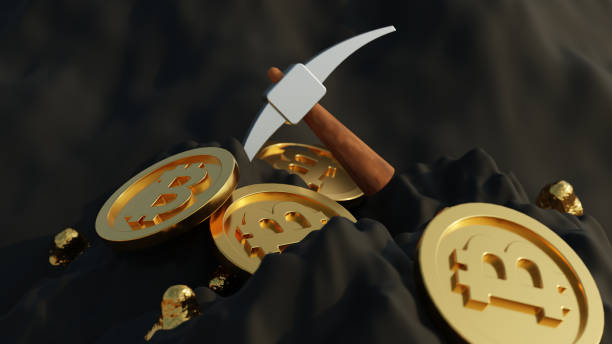One of the biggest changes the financial industry has ever seen is being driven by the combination of decentralized finance (DeFi) and Cryptocoin technology in 2025. Decentralized systems that remove middlemen and provide consumers complete control over their assets are reimagining traditional banking, which was previously seen to be the cornerstone of international economic stability. Decentralization is not only a fad; rather, it is emerging as a key component of a new financial landscape.
The Foundation of Decentralized Finance
DeFi is a group of blockchain-based financial services that function independently of conventional banks and other financial organizations. Smart contracts—self-executing code on blockchain networks—are used by DeFi apps to handle transactions, lending, borrowing, trading, and even insurance, as opposed to depending on centralized authority. These platforms are powered by cryptocurrencies, which act as collateral, a means of trade, and governance tokens that let users cast votes on changes to the system and its rules.
The Function of Cryptocurrency in Facilitating DeFi
The lifeblood of DeFi ecosystems is cryptocurrency. Cryptocurrencies provide decentralized services the functionality they need, whether Ethereum powers smart contracts or other altcoins operate as liquidity tools. Without depending on a centralized authority, they let users to take part in lending pools, yield farming protocols, and decentralized exchanges (DEXs). Cryptocurrencies are perfect for enabling the next wave of financial applications because of their transparency and security.
Decentralization for Financial Inclusion
Offering financial services to the underbanked and unbanked is one of the most potent effects of DeFi and cryptocurrency integration. Due to regulatory obstacles, regional limitations, or a lack of credit history, traditional banks often disqualify people. Anyone may use DeFi platforms, borrow or lend assets, and generate passive income via staking or liquidity provisioning with just a smartphone and an internet connection. This makes it possible to participate in the global economy.
User Empowerment and Trustless Systems
Users do not have to entrust their money to other parties in a world powered by DeFi. Rather, they communicate directly with smart contracts that safely and transparently carry out predetermined rules. The dangers of centralized failures like hacking, poor administration, or bankruptcy are significantly decreased by this arrangement. People are the real guardians of their money as they maintain control over the cryptocurrency they hold in decentralized wallets. The transition to trustless systems democratizes access to sophisticated financial instruments and empowers people.
Innovation in Asset Management, Trading, and Lending
The services provided by DeFi platforms are comparable to, and often better than, those of conventional banks. Lending and borrowing have grown more flexible, enabling consumers to get loans with only cryptocoin collateral and no paperwork or middlemen. Real-time asset trading with minimal costs and no centralized custody is made possible by decentralized exchanges. Algorithmic methods, portfolio monitoring, and automated rebalancing are made possible by asset management systems based on DeFi. These platforms are powered by cryptocoins and run via smart contracts.
Obstacles and Regulatory Concerns
The DeFi and cryptocoin movement is not without its difficulties, despite its potential. Users are at vulnerable from problems like rug pulls, erratic price fluctuations, and smart contract issues. Furthermore, investors and developers are left in the dark by unclear regulatory frameworks. Globally, governments are now debating how to regulate DeFi without impeding innovation. While there will probably be greater scrutiny in the next years, there will also probably be better security standards and stronger procedures.
The Development of DAO Governance
A logical progression of DeFi are Decentralized Autonomous Organizations (DAOs), which employ cryptocoins to divide up decision-making authority among users. These groups oversee platform development, carry out updates, and control treasuries by group vote. DAOs facilitate genuinely community-driven innovation and embody the spirit of decentralization. The transition from corporate hierarchies to open, token-based cooperation is highlighted by the fact that several of the top DeFi platforms are fully managed by DAOs by 2025.
A Global Financial Decentralization Movement
The use of DeFi and cryptocurrency is still gaining traction. Different blockchain networks are introducing new protocols, and conventional financial institutions are starting to look at joint ventures with decentralized platforms. DeFi is providing vital infrastructure in developing economies where traditional financial institutions have fallen short. Without boundaries or middlemen, it is providing alternatives to credit systems, investment funds, and savings accounts in developed economies.
In conclusion
The financial industry is undergoing significant change as a result of the confluence of DeFi and cryptocurrency. This decentralized movement is fostering a more transparent, inclusive, and effective global economy by dismantling central authority and empowering people. Despite ongoing difficulties, the quick speed of innovation and expanding acceptance portends a day when finance will no longer be contained inside bank walls but will instead be open, programmable, and driven by cryptocurrency.


